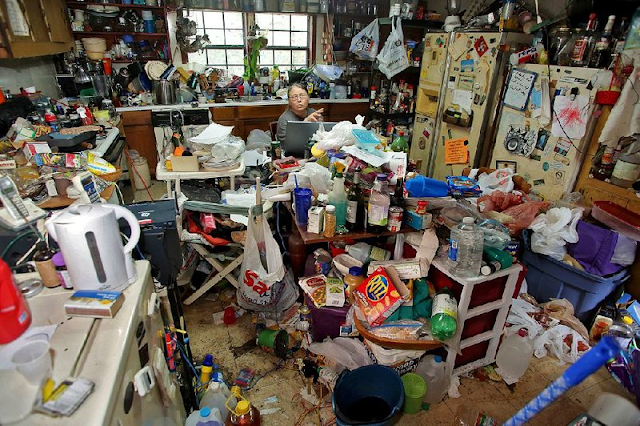Having too many stuff does not imply having a hoarding issue
Collectors and hoarders both buy more than they "need" and may be hesitant to give up their possessions. And they can each decorate their homes with their preferred items. So, where is the limit? Why do we regard one as a pastime and the other as a mental illness?
Hoarding disorder was just recently recognized as a mental health diagnosis, with inclusion in the DSM-5 in 2013. That is when it received an official definition, though many uncertainties persist. Psychologists are still unsure whether collecting can lead to hoarding or vice versa, and the causes and best therapies are still unknown.
What exactly is hoarding disorder?
The basic characteristics of hoarding disorder include compulsive acquisition of new things, difficulty parting with things you already own, and little to no organization of the rising amount of hoarded stuff.
Collecting, on the other hand, is highly regulated. Collectors may still struggle to part with their favorite goods, or they may purchase more items than they should. But they also take good care of their collections, organizing and admiring them. Here are a few more distinctions.
Collectors are more organized
One of the most noticeable differences between collectors and hoarders is that hoarders prefer to accumulate clutter in their homes. Items pile up, and the individual may forget or be oblivious of what they have.
Collectors, on the other hand, typically systematize their discoveries. Instead of having goods strewn about the house, they may create a closet or a room dedicated to collecting items. Items can be displayed, grouped, or categorized in several ways. According to a survey of both collectors and persons suffering from hoarding condition, 95% of collectors sorted their items, whereas less than half of hoarders did.
Individual things are important to collectors
Collectors were more likely than others in the same survey to seek out specific items and make an attempt to learn more about the objects they collected. Hoarders are less deliberate in their acquisitions. They're more likely to notice something and decide to buy it, rather than deciding that their collection is lacking something and going out to find it.
Collectors also had a theme for their collection—usually a very specific one—and they planned what they intended to collect next. Only 55% of collectors claimed they collected stuff they could get for free; the remaining 95% indicated they bought items for their collection. On the other hand, 70% of hoarders acquired free goods and 87% purchased items.
Hoarding disrupts a person's social and domestic life
Collectors may converse about their pastime with others, establishing friends with other collectors and discussing the items they collect. Collectors were also found to be more likely to be married and to have a decent social life, according to the study. Hoarders, on the other hand, are more prone to be socially isolated and to have problems at work.
Hoarders, like collectors, are distressed by their clutter, however hoarders are more likely to report that their collecting offers them delight. A lack of organization contributes to this: a collection's living space is still "useful" as a room, whereas hoarding results in piles of objects that make the home difficult to use or move around in.
To meet the diagnostic criteria for hoarding, the individual must have "substantial distress" in their job, social, or home life as a result of hoarding. Clutter frequently accumulates to the point where sections of their home are no longer usable (for example, being unable to reach the stove to prepare food), which adds to their stress.
Hoarding disorder is typically treated with talk therapy, such as cognitive-behavioral therapy approaches. The underlying fears of getting rid of items or not "wasting" things can be difficult to overcome. Seek mental health counseling if you or someone you love appears to have a hoarding problem.
#CollectingVSHoarding #Hoarding #Collectors #HoardingDisorder





No comments:
Post a Comment